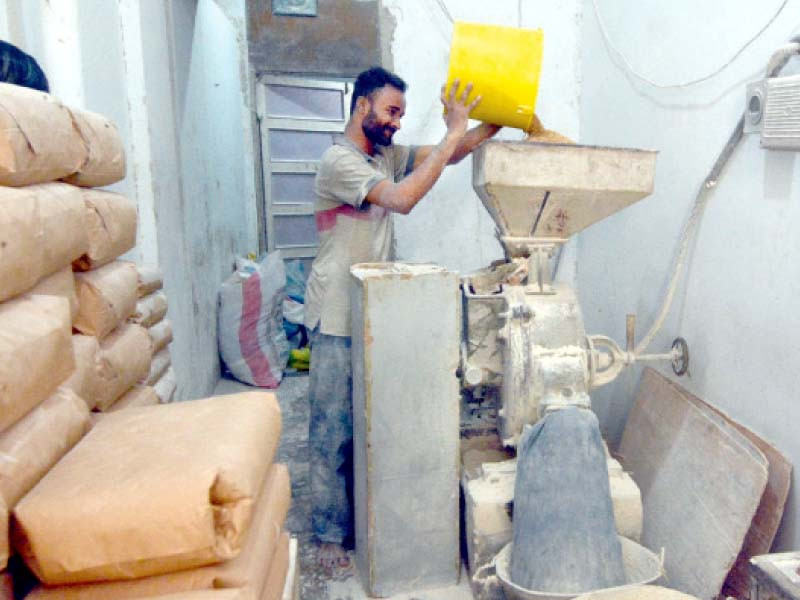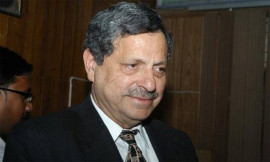
The Economic Coordination Committee (ECC) of the Cabinet has granted ex post facto approval of Rs985.43 million for the Utility Stores Corporation (USC) to supply free wheat flour under the prime minister's scheme during Ramazan in the last fiscal year.
The huddle, chaired by Finance Minister Ishaq Dar, saw attendance from high-ranking officials, including Industries and Production Minister Makhdoom Syed Murtaza Mehmood and Coordinator to the PM on Economy Bilal Azhar Kayani.
The ECC considered a summary of the industries and production ministry for the provision of free flour during Ramazan to deserving citizens in the fiscal year 2022-23 under the prime minister’s initiative and gave the nod to an amount of Rs985.43 million spent by the USC on the scheme.
The scheme, launched on March 18, 2023, and carried on till April 16, 2023, aimed to benefit deserving citizens in Punjab, Khyber-Pakhtunkhwa, and the federal capital.
According to official statistics, over 23 million families benefitted from the free flour distribution. In Punjab, the distribution took place through 8,500 Utility Stores and around 20,000 points set up across the province. Similarly, around 5.23 million families in Khyber-Pakhtunkhwa received the benefits of the scheme, achieving over 90% of the set target.
However, the scheme faced controversy when senior PML-N leader and former premier Shahid Khaqan Abbasi alleged widespread corruption amounting to over Rs20 billion in the distribution of free flour.
He claimed that the corruption occurred despite the allocation of a budget of Rs84 billion. While Abbasi did not directly implicate the caretaker Punjab government in the corruption, interim provincial Information Minister Amir Mir vehemently denied the allegations, calling them "false and fabricated."
Mir defended the free flour scheme, asserting that it was the most successful in Punjab's history, benefiting 30 million deserving people.
He challenged Abbasi to provide evidence of corruption. In response, Abbasi revised his initial estimate of embezzled funds, claiming that Rs20 billion was an undervalued figure.
The gravity of the situation led the National Accountability Bureau (NAB) to initiate a probe into the corruption allegations in the free flour distribution programme in Punjab.
NAB officials visited the head office of the Pakistan Flour Mills Association (PFMA) and interrogated its officials for four hours.
During the briefing, PFMA Central Chairman Asim Raza and Punjab Chairman Iftkhar Ahmad Mattu informed the NAB delegation that Lahore millers provided trucks of flour to the Punjab Food Department and district administration at their gates. The mills were responsible only for grinding the wheat supplied by the provincial food department.
According to the PFMA officials, flour trucks were handed over to the food department and district administration daily at the mills' gates.
The investigation by the NAB aims to shed light on the alleged corruption, but the process may take time as the authorities assess evidence and scrutinize the distribution system.
As the investigation unfolds, the controversy surrounding the free flour scheme continues to cast a shadow over the government's efforts to provide essential support to vulnerable families.





1717676836-0/jelly-roll-(1)1717676836-0-165x106.webp)



1724926799-0/Untitled-design-(7)1724926799-0-270x192.webp)








COMMENTS
Comments are moderated and generally will be posted if they are on-topic and not abusive.
For more information, please see our Comments FAQ